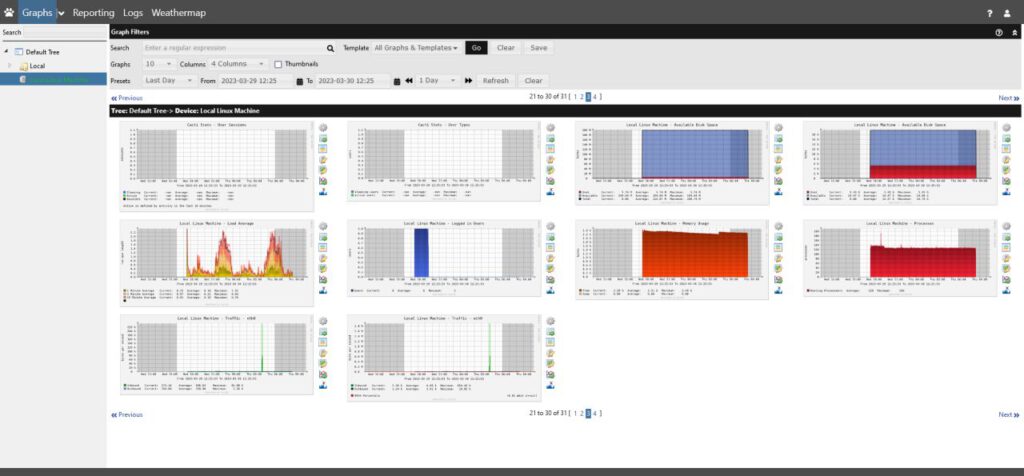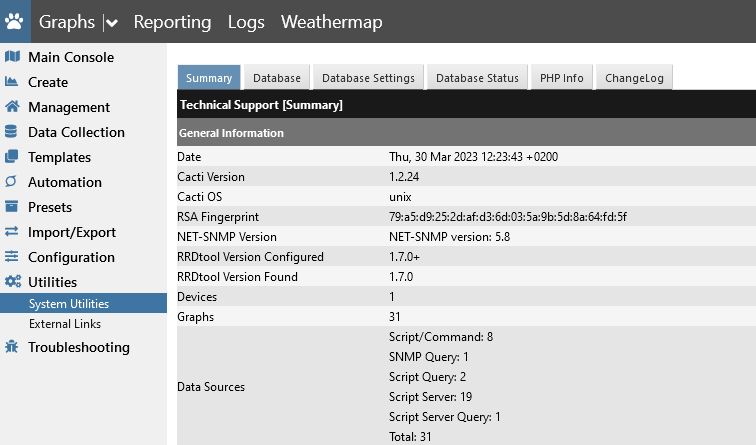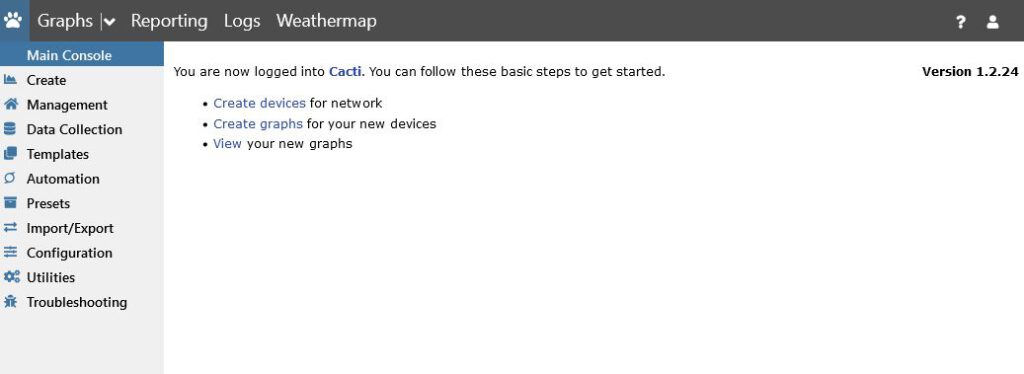Automating Network Infrastructure: Seamless Synchronization Between SolarWinds and Cacti
In today’s complex network environments, maintaining accurate device inventories across multiple monitoring platforms is a challenge that every network operations team faces. When your organization relies on both SolarWinds for comprehensive network discovery and Cacti for performance monitoring, keeping these systems synchronized can become a time-consuming manual process fraught with errors.
We developed an automated solution that bridges this gap, creating a seamless synchronization workflow between SolarWinds device exports and Cacti’s monitoring infrastructure.
The Challenge
Network teams typically face several pain points when managing multiple monitoring platforms:
- Manual device synchronization between systems leads to inconsistencies
- Outdated device inventories create monitoring blind spots
- Time-consuming administrative tasks pull engineers away from strategic work
- Lack of hierarchical organization makes it difficult to navigate large device lists
- Redundant configuration increases the risk of errors
Our Solution: Intelligent Automation
Our automation framework tackles these challenges head-on with a comprehensive approach:
1. Smart Device Discovery & Synchronization
The system automatically processes SolarWinds device exports (Excel format) and intelligently compares them against Cacti’s existing inventory. It identifies:
- New devices that need to be added to Cacti
- Removed devices that should be flagged for deletion
- Changed configurations that require updates
2. Intelligent Device Filtering
Not every device deserves equal attention. Our solution includes sophisticated filtering logic:
- Device function-based selection focuses on routers, switches, firewalls, and critical infrastructure
- WAN interface detection for Layer 2 switches ensures only edge devices with WAN connectivity are monitored
3. Hierarchical Organization
The automation creates a logical, navigable structure:
- Region → Country → Site hierarchy in Cacti’s device organization
- Automatic site creation with timezone detection based on country
- Graph tree automation that organizes WAN interface graphs by geographic location
4. Graceful Device Lifecycle Management
Rather than immediately deleting devices, our system implements a staged approach:
- Devices missing from SolarWinds exports are tagged as [TO BE DELETED]
- A configurable grace period allows for verification before permanent removal
- Detailed audit trails track when and why devices were flagged
5. Targeted Graph Automation
The system automatically creates automation rules that:
- Focus specifically on WAN interface graphs
- Organize graphs hierarchically by Region/Country/Site
- Use site codes extracted from device hostnames for intelligent matching
Key Benefits
Organizations implementing this automation experience:
- 90% reduction in manual device management time
- Consistent inventory across monitoring platforms
- Faster onboarding of new network devices
- Improved visibility through organized hierarchical views
- Reduced monitoring gaps from outdated inventories
Technical Highlights
Our solution leverages:
- Cacti’s native API for seamless integration
- PHPSpreadsheet for robust Excel file processing
- SNMP polling for real-time device validation
- Intelligent pattern matching for device and site identification
- Database-driven automation for reliable operation
Real-World Impact
For organizations managing hundreds or thousands of network devices across multiple regions, this automation transforms network monitoring from a reactive, manual process into a proactive, automated workflow. Network engineers can focus on analysis and optimization rather than administrative tasks.
The system runs automatically on schedule (via cron), continuously ensuring that your Cacti monitoring infrastructure accurately reflects your SolarWinds device inventory.
Looking Forward
As network infrastructures continue to grow in complexity, automation isn’t just a nice-to-have—it’s essential. By bridging the gap between discovery platforms like SolarWinds and monitoring systems like Cacti, organizations can maintain accurate, up-to-date visibility into their network infrastructure without drowning in administrative overhead.
Ready to automate your network monitoring workflow? This solution demonstrates how intelligent automation can transform network operations, freeing your team to focus on what really matters: keeping your network running at peak performance.





